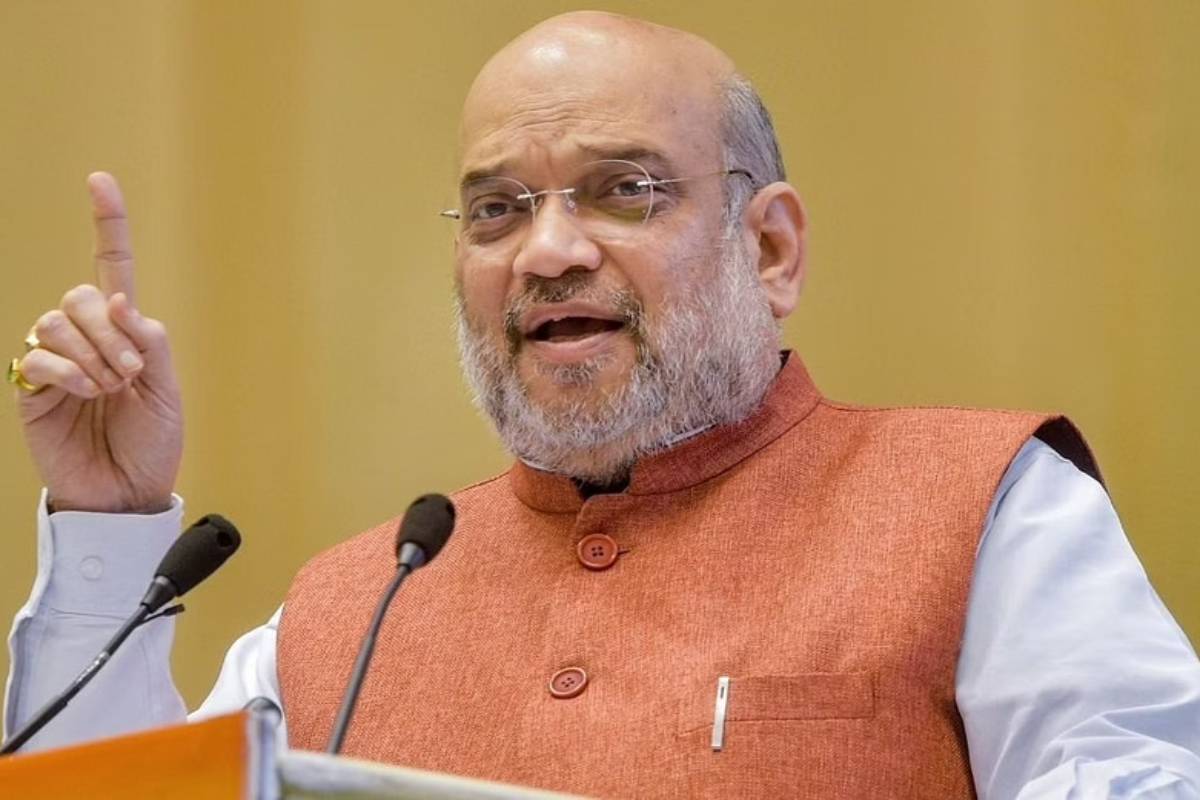

HM Amit Shah Announces Anti-Drone System at 31st Northern Zonal Council Meeting
The 31st Northern Zonal Council meeting held in Amritsar saw discussions on more than 28 critical issues, including the announcement by Union Home Minister Amit Shah regarding the implementation of an anti-drone system along India’s borders in the near future. The Ministry of Home Affairs (MHA) revealed that several vital concerns concerning the member states and the nation as a whole were deliberated during the meeting.
Among the topics addressed were the equitable sharing of inter-state river waters, the expansion of banking services and postal banking facilities to rural villages, the effective execution of Direct Benefit Transfer for Social Sector Schemes, matters related to Punjab University, road connectivity through the Pradhan Mantri Gram Sadak Yojana (PMGSY), cybercrime prevention, the Jal Jeevan Mission, the resumption of flights under the UDAN Scheme, expeditious investigation of sexual offense/rape cases involving women and children, the implementation of the Scheme of Fast Track Special Courts (FTSCs) for the speedy resolution of rape and POCSO Act cases, the strengthening of Primary Agricultural Credit Societies (PACS), and the lawful acquisition of agricultural land.
The Northern Zonal Council meeting brought together Chief Ministers from Punjab, Haryana, and Himachal Pradesh, along with Lt Governors of Delhi, Jammu Kashmir, and Ladakh, and the Administrator of Chandigarh. It also featured Senior Ministers from the member states, the Union Home Secretary, the Secretary of the Inter-State Council Secretariat, Chief Secretaries from the Member States in the Northern Zone, and other senior officials from states, Union Territories, Central Ministries, and Departments.
Union Home Minister Amit Shah recognized the evolving role of zonal councils, transforming from advisory platforms to action-oriented forums over the last five years under the leadership of Prime Minister Narendra Modi. Shah stressed the importance of the meeting in terms of national development and security, emphasizing that the Northern region contributes significantly to India’s economy, food grain production, and landmass.
Shah noted that a substantial portion of the personnel in the Central Armed Police Forces (CAPFs) and the Army, responsible for safeguarding India’s borders, hail from the states and Union Territories within the Northern Zonal Council.
Acknowledging the government’s successful efforts in combatting narcotics and terrorism under Prime Minister Modi’s leadership, Shah reiterated the government’s commitment to enhancing border security. He announced the forthcoming deployment of an anti-drone system along India’s borders.
HM Shah also urged member states to resolve water-sharing disputes through open dialogue and mutual discussions. He called for special attention to issues such as cooperation movements, reducing school dropout rates, and addressing malnutrition as collective priorities. Shah emphasized the responsibility of ensuring that no child in the country remains malnourished and called for a reduction in school dropout rates. He encouraged the cooperative movement to promote prosperity among more than 60 crore (600 million) people in the country. Shah also urged member states to embrace natural and organic farming practices.
The Union Home Minister assured the Himachal Pradesh government of the Centre’s full support in dealing with the state’s flood situation.
The Northern Zonal Council commended the achievements of Chandrayaan-3, India’s leadership on the global stage, and the historic passage of the Women’s Reservation Bill by Parliament.
Union Home Minister Shah praised the Zonal Councils for their role in promoting mutual understanding and cooperation among states. He highlighted that these councils serve as platforms for resolving complex issues in an atmosphere of goodwill and amity. The Zonal Councils facilitate coordinated approaches among states on significant socio-economic development matters and provide recommendations on common interest issues.
Shah noted the increased frequency of meetings of the Zonal Councils and their Standing Committees, emphasizing the commitment to fostering cooperation among states. He observed that the number of meetings had more than doubled over the last decade.
The meeting also provided an opportunity for member states and Union Territories to share and learn from each other’s best practices.
Also Read: ‘India is Seen As Problem Solver’, Says EAM Jaishankar
Catch all the Latest Business News, Breaking News Events, and Latest News Updates on NewsX
AIADMK had severed ties with the BJP in September 2023 ahead of the 2024 Lok…
Luigi Mangione's legal team filed the request in a Manhattan court, emphasizing that the laptop…
The veteran thespian, also renowned for his performances in Cyrano de Bergerac and The Last…
The Waqf Board Bill is likely to be introduced in Parliament next week. According to…
Accompanied by her fiancé, music producer Benny Blanco, Gomez shared her perspective on the intense…
A firefighting helicopter crashed in South Korea’s Uiseong County on Wednesday, killing the pilot while…